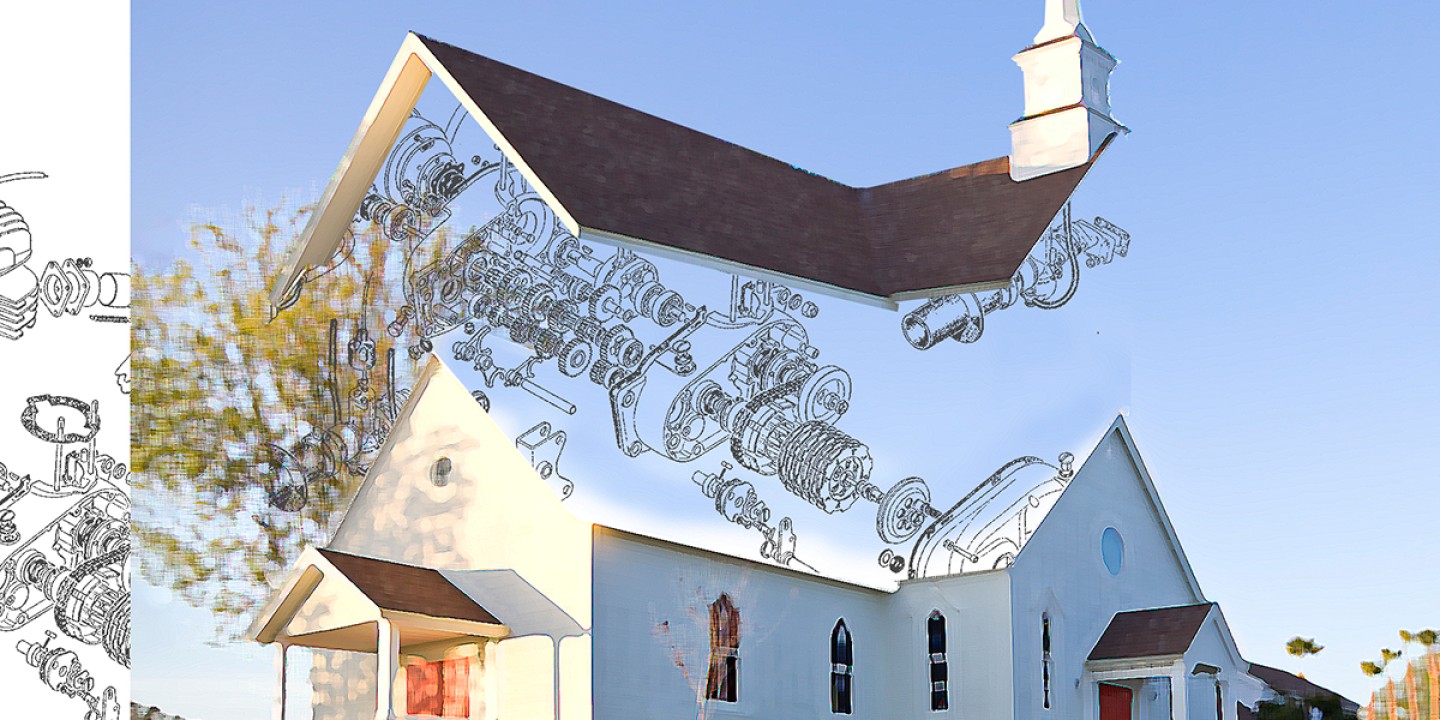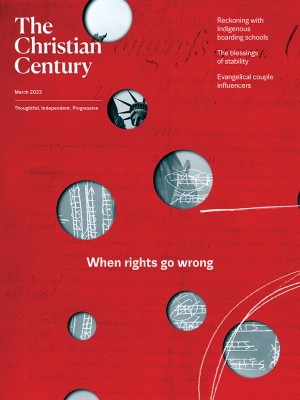The little engine that needed collaborators
Clergy burnout happens when churches expect pastors to do everything and pastors oblige.

According to a recent study from the Barna Group, 42 percent of pastors have given “real, serious consideration” to quitting full-time ministry. That number is higher for pastors under 45 years old and even higher for women (regardless of age). If 42 percent of pastors are seriously considering quitting, then no doubt most of the pastors reading this have at least thought about it. And if you’re a layperson, deacon, or elder, hear me now: there’s a good chance your pastor is thinking about quitting.
This column is not a call to take better care of your pastor or to take a special collection to send them on an uninterrupted vacation. As nice as vacations are—and I wonder how many “Pastors like Mai Tais, too!” T-shirts I could sell—a lack of vacation is not high on the list of burnout factors that pastors cite. In this season, clergy health requires something much more imaginative than “Here, go away.”
Read our latest issue or browse back issues.
Pastors burn out for the same reasons engines do: they work too hard. Frontline care providers of all kinds are working too hard these days. One myth is that better engines can sustain the load, that clergy burnout is the result of weak or unfit clergy. But while it is true that some people have no business doing public ministry, the larger truth is that small, relatively weak engines can last hundreds of thousands of miles and perform incredibly well—with the right support. Both performance and lifespan depend largely on how much an engine has to compensate for systems around it that aren’t functioning well. And any pastor, whether they feel “built for this” or not, will be brought closer to burnout if they are performing most of the operational duties at a church themself.
When Barna asked pastors why they were considering quitting, the top two answers were “stress” and “feeling lonely and isolated” (with “political divisions” coming in a distant-but-meaningful third). So the question for congregations to ask is not how to give their pastor a break but rather how to help them overfunction less. Or even the radical question, “How can we do this together?”—instead of participating in the rock-star myth of the pastor who does it all.
Rock stars, after all, don’t make songs by themselves. The album cover might not tell you that, but liner notes will. Take the hip-hop duo Outkast, for example. It is fair to assume that the two people on the cover wrote every Outkast song. But then, who made the beat? And that live bassline, someone’s playing that. And that piano, is that the producer? Nope, someone else. Read the liner notes and you discover that Outkast’s first album alone, Southernplayalisticadillacmuzik, involved 36 writers, musicians, and engineers—36 collaborators. And that number only grew bigger with later albums.
If clergy are rock stars, then we are clearly only looking at the album cover. So people treat them as the ones holding everything together and prioritize them above everything else. They become symbols of a congregation’s faithfulness—icons of its goodness. And this keeps churches from providing the personnel for either the church or the pastor to operate well. Instead of working in harmony, churches let their clergy sing acapella solos, hoping that if they’re good enough at it things will turn out OK.
Many clergy play too readily into this, all too happy to have our own stage. I can’t think of a sentiment that more decidedly disrespects God, self, and everyone involved.
At some point—I’ll leave it to the historians to say when—we seem to have stopped taking seriously the biblical notion of church as a community of collaborators. We went from the priesthood of all believers to a professionalized clergy who are simply followed rather than engaged with mutually. I’m convinced that this shift is at the root of problems with clergy health. Sure, more people might join churches where less is asked of them, but ultimately people—clergy and lay alike—want to be part of a community of mutual support.
What about clergy who aren’t feeling burnout? What are they feeling? According to Barna’s research, they talk about believing in the value of their ministry and feeling a sense of duty, as we might expect. But 59 percent of them also talk about the “support they receive from their community.” The difference between a healthy ministry and a diseased one may very well be the difference between pastors who have functioning, collaborative systems around them and those who overfunction alone.
Let’s close with a litmus test. As layfolk, do you serve your clergy, or are you there to work with them? Can you lead a project without them, or do you find that every process needs their approval? Is it their church, or are all of us the church? How does the gospel support your current style of leadership and support?
As pastors, can we collaborate, or must we always sing acapella solos? Are there things others can take on without us, or are we the only ones who can do them? If there is no one else to do it, must it be done at all? Does being an icon serve the gospel or just our own egos?
Clergy overfunctioning and burnout is based in bad theology, and it’s on all of us to change it. Perhaps seminaries should be training congregations along with clergy! Unless we take churches seriously as collaborative communities, it won’t be long before these good and faithful engines can’t do it anymore.
* * * * * *
Jon Mathieu, the Century's community engagement editor, engages Voices columnist Julian DeShazier in conversation about his article and the issue of clergy burnout.






